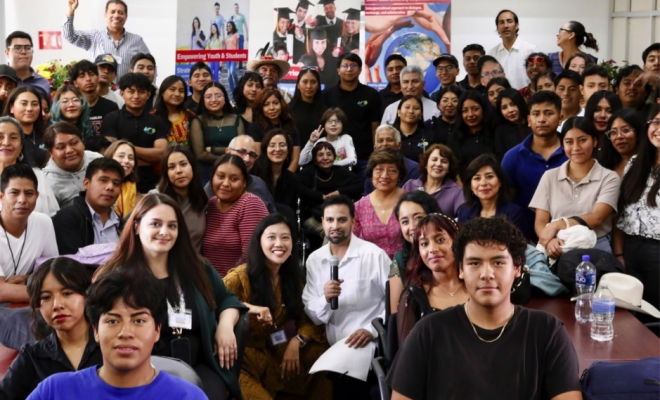Successful strategies and interventions to improve women’s participation in higher education
To celebrate International Women’s Day 2024, UNESCO IESALC and UNESCO Regional Office for Southern Africa jointly hosted an online dialogue focusing on initiatives with a sustainable impact on women’s participation in higher education, particularly in leadership and STEM -acronym for Science, Technology, Engineering, and Math- fields.
Throughout the event, the speakers shed light on the scope of their respective successful projects and engaged in discussions identifying opportunities to further foster gender equality in the sector.
Opening the event Nisha, director of UNESCO Regional Office for Southern Africa and Francesc Pedró, director, UNESCO IESALC, underscored the significance of the topic, particularly emphasising the economic advantages of women’s involvement in a technology-driven economy and the fundamental right of individuals to pursue any career, including within academia.
Also participated Daniele Vieira, Assistant Professor at the Federal University of Pernambuco; Rovani Sigamoney, Education Programme Specialist at UNESCO Regional Office for Southern Africa; Roberta Malee Bassett, Global Lead for Tertiary Education and Senior Education Specialist at the World Bank; Martha Jez, Co-Founder/CEO, Fair Chance Learning; and Peter Wells, Head of Education, UNESCO Regional Office of Southern Africa
They spotlighted key interventions, identified through research, that could significantly impact the experiences of women and girls in tertiary education. There was a consensus that nurturing talent and fostering STEM experiences should commence earlier within educational systems. Peter Wells articulated this idea, stating: “STEM starts with teachers and girls. It all comes down ultimately to the primary and secondary levels, and I think this is something we really need to focus on.”
Additionally, Rovani Sigamoney, pointed out that other potential success factors encompass the development of robust institutional policies and the establishment of gender equality plans, implementation of mentorship programs and flexible learning formats, ensuring maternity leave rights and access to childcare services, collaboration with potential employers to facilitate the successful transition of female graduates into the labour market, and further research initiatives.
Regarding the latter, Daniele Vieira highlighted a critical challenge hindering progress: “One of the difficulties that we found is the availability of data. If we want more women to reach seniority levels inside the institutions, we need to know what the current situation inside the institutions is.”
It was also noted that for long-lasting effects on women’s inclusion in higher education, interventions must prioritise sustainability. Drawing from her own experiences, Roberta Malee Bassett remarked that World Bank funding primarily serves as temporary support, with the expectation that countries will eventually become self-sufficient. She views sustainability as a fundamental consideration in all interventions. In addition, Daniele Vieira stressed the importance of continuous evaluation and monitoring of the situation to help identify areas for improvement and adapt strategies accordingly.
In further discussion, all panelists emphasised the pivotal role of forging collaborations in driving positive change. Martha Jez underscored this point, stating: “By including industry in the partnership between governments, universities, and nonprofits, we have a solution that can provide a more resilient and inclusive workforce and greater security for women.”
The event itself marked a significant endeavour in fostering this dialogue, offering a shared platform for the exchange of ideas and impactful strategies to advance gender equality in higher education.
RELATED ITEMS















